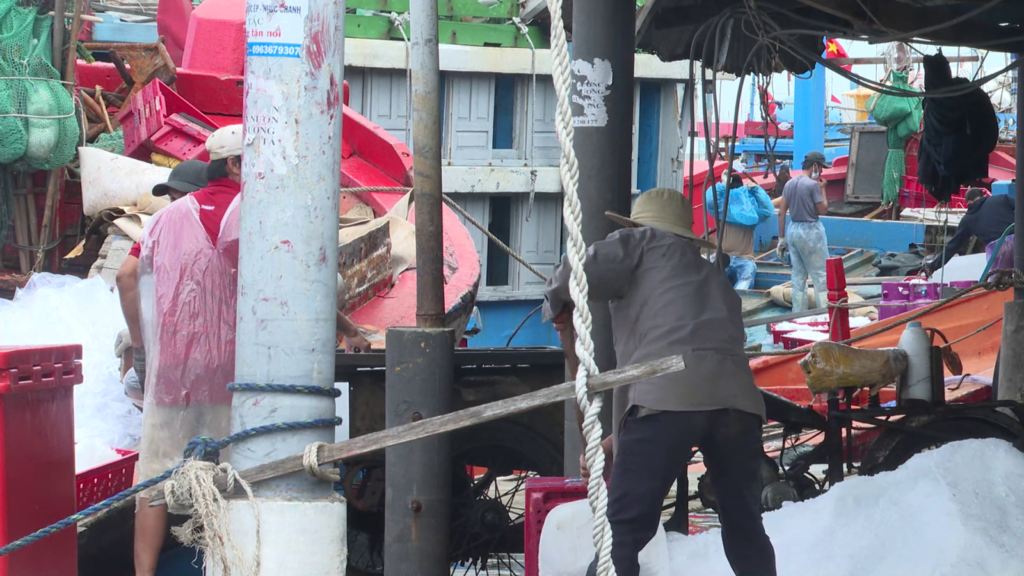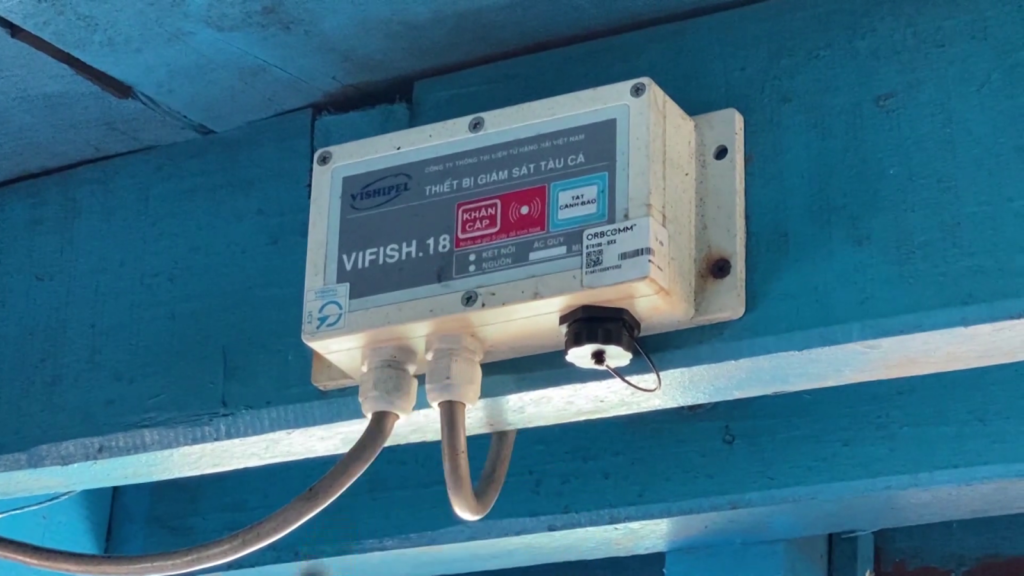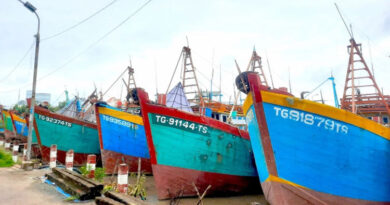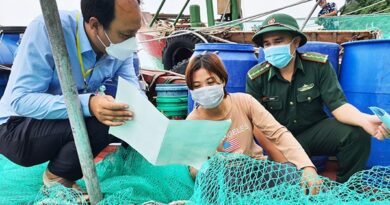Vietnam to meet EC’s anti-IUU fishing recommendations
In efforts to remove the “yellow card” warning over IUU fishing, Vietnam has adjusted regulations to match international rules and meet the EC recommendations, according to the Directorate of Fisheries.

Determined to have the “yellow card” warning lifted, ministries, sectors, and coastal localities have implemented various solutions to combat illegal, unreported and unregulated (IUU) fishing, said Vu Duyen Hai, head of the fisheries exploitation division at the Directorate of Fisheries under the Ministry of Agriculture and Rural Development (MARD).
So far, Vietnam has installed vessel monitoring systems (VMS) on more than 28,600 vessels, equivalent to 98.2%, and perfected regulations which now basically match international rules and meet recommendations from the European Commission (EC).
Meeting EC recommendations
The EC issued four groups of recommendations that Vietnam needs to apply so as to have the “yellow card” warning lifted. They are related to institutional improvements, fleet control, law enforcement enhancement, and origin tracing. Hai discussed these at a press meeting held on April 11 by the Authority of Foreign Information Service under the Ministry of Information and Communications and the Standing Office of the Government’s Steering Committee for Human Rights.
He noted that to carry out the recommendations, the Government released Decree No. 37/2024/ND on April 4 this year to amend and supplement Decree No. 26/2019/ND-CP that details some articles and enforcement measures for the Law on Fisheries. It also issued Decree No. 38/ND-CP on April 5, stipulating fines for administrative violations in the fisheries sector.
The MARD also built and proposed the Prime Minister issue some programmes, projects, and plans on developing a sustainable and responsible fisheries sector integrating into the world and on fighting IUU fishing.
Hai said that Vietnam’s legal framework has been amended, now basically matching international rules and meeting the EC recommendations.
To monitor their activities, more than 28,600 fishing vessels have been equipped with VMS so far, equivalent to 98.2%.
The MARD has also made lists of ineligible vessels and assigned local authorities to strictly monitor their locations and prevent them from operating at sea, he continued.
Origin tracing has been completed in line with the Law on Fisheries and the Port State Measures Agreement (PSMA), the official said, adding that inspections carried out by the MARD so far confirmed fish product origin.

In terms of law enforcement and violation settlement, Hai said a database for dealing with administrative violations in the fisheries sector has been put into use so that authorities can monitor and assess violators, especially those linked with VMS disconnections.
Numerous solutions taken to fight IUU fishing
Hai went on to say that an EC delegation is scheduled to visit Vietnam in the near future for the fifth inspection of the country’s adherence to anti-IUU fishing rules. The coming inspection is considered decisive to whether or not Vietnam could have the “yellow card” warning lifted.
Therefore, the Government, ministries, sectors, and localities have taken various solutions in the recent past to make substantive changes to the combat against IUU fishing with a view to having the “yellow card” removed after the coming inspection.
After the fourth inspection in October 2023, the EC delegation praised Vietnam’s efforts against IUU fishing as improvements were recorded in implementing the recommendations issued in the previous inspection.
The Directorate of Fisheries said since the EC’s fourth inspection, all 28 coastal provinces and cities have been applying numerous measures to carry out the EC recommendations.
Good performers include Binh Dinh, Ca Mau, and Kien Giang provinces, according to Hai.
Solutions implemented are fishing fleet managment, VMS connectivity, seafood catch management at ports, training on anti-IUU fishing regulations for fishermen, especially vessel owners and captains, and persuading fishermen not to infringe regulations when working at sea.
Hai added that the MARD has submitted a master plan on fishery resources protection and exploitation for 2021-2030, with a vision to 2050, to the Prime Minister for approval. It is also working to restructure fishing fleets that specialise on inshore or deep-sea fishing appropriate to each sea area and the recoverability of the marine ecosystem.


